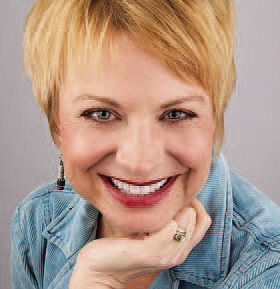“An Empty Space”
This week was spent with the familiar sensation that I have no idea what I am doing.
I just started rehearsals for a show about my column and the origin story for my first novel, Loon Point, that comes out next February. There is a lot of work to do before the show will be per- formed anywhere, but this week we took the first step. My director, Cheryl, and I are meeting in an old church that has been converted into a community center. The room we are in doubles as a dining hall for funerals and a kitchen for the food shelf.
The floors are linoleum tile, and there is the familiar smell of cooking. We started, as all plays start, by looking at an empty space and imagining how to fill it.
'I don't think we need a chair,' Cheryl said. We had talked about having a chair, and now we had a folding chair sitting in the middle of the stage. The chair looked as if it was about to do something very important and, since I wrote the script, I knew that it was not. 'I say we get rid of the chair,' Cheryl said, with more convic tion. I folded up the chair and hustled it offstage. The chair, formerly the star of the show, had been officially fired. But Cheryl liked the hat stands I had brought and agreed we needed two of them. She liked the stool, and we added a small table -- except we didn't have a
small table. So we used the same old folding chair, now conscript ed into playing the role of a table.
(Don't worry if you are confused.
I'm sure the chair was, too.)
Then we silently looked at what had suddenly turned from a dining hall into a stage. 'I'd like you to read the script and move around,' Cheryl told me.
This is the part I hate.
I have no natural instincts when it comes to movement. I have vivid recollections of every dance class I took as a young per- son. I was flexible, and classes al - ways began with floor exercises.
I would see the face of the dance teacher light up as they assumed I was a dancer, and I would dread what was coming. I would stand up and start to move, and the teacher would immediately realize they had made a mistake -- I was absolutely not a dancer.
In fact, I had enormous difficulty following the simplest instructions. The notion of 'body memory' was alien to me. I had a bad case of body amnesia.
But I did as Cheryl asked. I read the script aloud, and I moved when I felt I should move. Cher yl took notes with a very serious look on her face (even during the parts that I hoped were funny), and when I finished, I knew a show had started.
I came home surprisingly tired. 'How did it go?' my hus- band, Peter, asked.
I wanted to say that I felt as if the linoleum floor of the old din - ing hall had ceased to exist, and we'd entered a new world -- yet I had returned to my old home.
I felt as if I was doing the thing that was always hardest for me, a thing that could never be done perfectly, and -- when it was done best -- only lasted for a moment. I wanted to say I felt as if I'd taken part in a small miracle. And I had no idea what I was doing.
'It went well,' I told him. Be cause it had.
Till next time, Carrie



